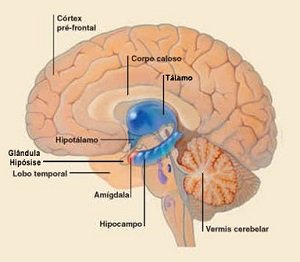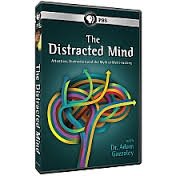
Arquivo para a ‘Cognition’ Categoria
Myths and ptifails about ” attention deficit “
It is common to associate the deficit of attention to the use of many devices , common now because of digital technology , most researchers have stated that it is a myth , but let the cognitive point of view what happens .
because of digital technology , most researchers have stated that it is a myth , but let the cognitive point of view what happens .
Physiologically, the brain receives new information by the thalamus , it is a filter of attention, if you are talking to someone in a noisy environment, it blocks coming from outside to keep the information coming from the conversation.
If we train it is possible to change the ” task” , for example , leave the TV and read a text, but very things that draw the attention of the thalamus and the filter does not work , can cause a “dispersion” or so-called attention deficit , and these cases are many in the modern world .
Nerve impulses transmitted to the processing center , which is the cortex, a kind of shell the kernels of the brain , is capable of identifying different stimuli by the senses , for example, you eat the palate is active and is also talking , both information will pass through the thalamus and cortex to different region , which corresponds to the hearing ( conversation) and taste ( taste).
After recognizing the stimulus , the cortex sends information to the hippocampus , is that he is the commander of memory, ie , select what is stored and discards what he thinks essential, but this depends on the encouragement you give, eg , my father’s speech is not important, then discard , just want to enjoy and then forget , then discard .
Ended up seeing a basketball game with some friends , the game goes to a place to save because you felt happy and had an incentive to save , but saw the people that are in the game , and did not pay attention (not reinforced stimulus) , then it goes to the place where you can forget, or ever forget the next moment .
While the hippocampus works , you will giving a “featured” emotional all the information it deems important , helping to highlight what should be labeled, so it gives more value to certain information that you tell the brain that is important.
So forgetfulness is bound to like , to be desired and also to train the brain to what is important , most of the information we make ” an obligation ” is discarded .
This information is sent to the region called the amygdala (not to be confused with the throat), which gives an “emotional warmth ” to information , highlighting what is most striking to us .
So what ” we want to keep it” can not be a moment of “attention deficit”, for example : environmental discomfort , tiredness or something nasty side
Informational nutrition
Like most people today eat badly information , confuse this phenomenon with the advent of the Internet and then the web application (is just an application on internet) .
the Internet and then the web application (is just an application on internet) .
The phenomenon of the information , as we highlight in another post , predates the internet and long before the Web , the question of the abundance of information was already studied in the 40s and an important aspect of this book is ” Information Anxiety ” Wurman .
But the appearance was worsened with technology , and Professor Larry Rosen of California State University and is a researcher of the ” psychology of technology” , states that the average attention span of many people now , is only 3 to 5 minutes then get distracted and fail to finish what they started .
Like an immense table all sorts of food in Brazil characteristic of self -service , but around the world can be thought of as a beautiful Christmas table , you should not eat everything and can get sick if you do this .
For information is the same thing, then we need to select what, how much and how we ” feed ” of information , and this is what I call “informational nutrition.”
According to Dr. Adam Gazzaley , who wrote The Distracted Mind the brain may seem limitless in its potential , or limitations such as processing speed , attention limits , limitations on work, sensitivity to interference . Both external , and internal .
Clarifies the book , there has been an explosion in the variety and diversity of electronic media . Portable devices can provide maximum information from a computer , he then asks the questions :
• Have you ever worked on a document while listening to a song and had to open an email ?
• Have you ever watched television while surfing the web and receiving text messages ?
The various media devices that children use both , may be even higher than adults , and this kind of behavior is not going away anytime soon.
But this can influence our cognitive capacity and performance of our brain , the book tells how to control these issues .

